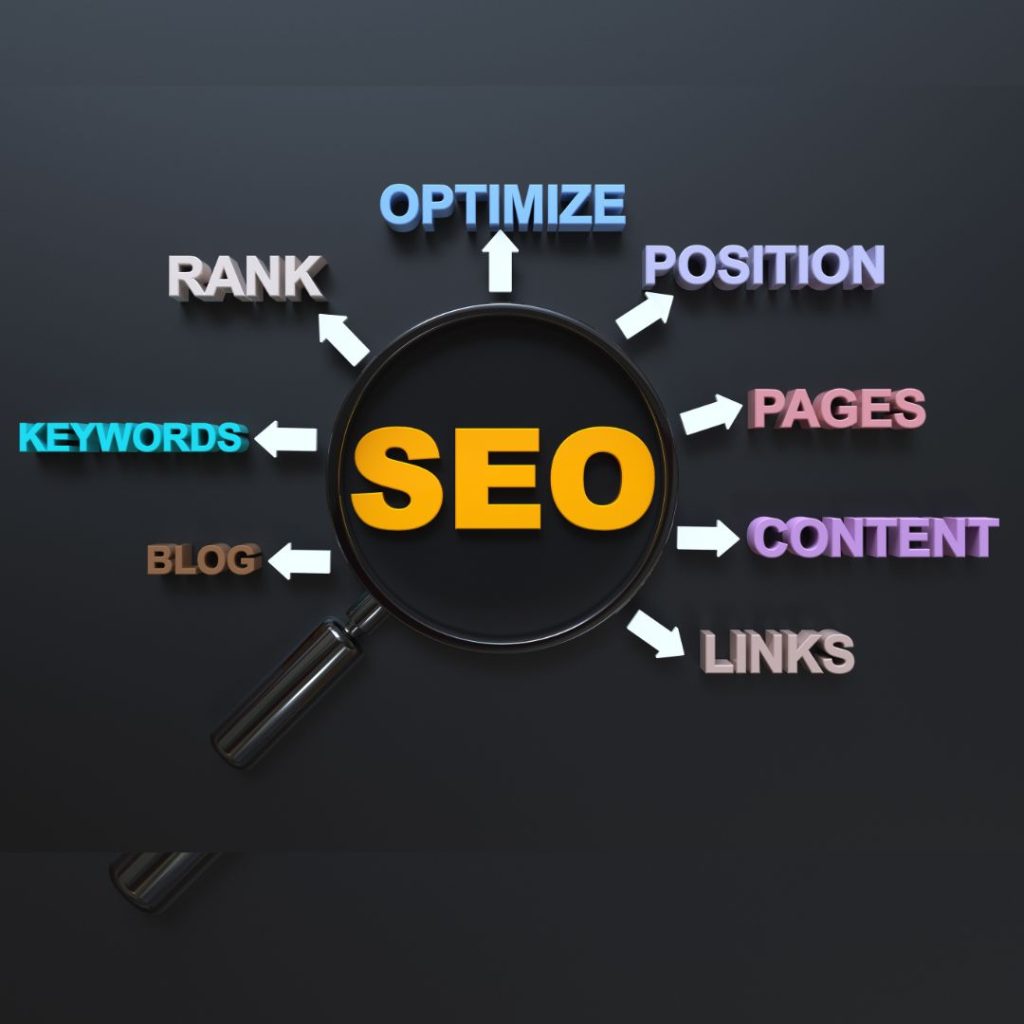Ecommerce SEO helps your online store appear higher in search engine results, making it easier for potential customers to find your products. When your site is optimized with the right keywords, and quality content, you attract more organic traffic without paying for ads. Hire E-commerce experts today and boost your online sales.
Product and Category Page Optimization
Make your ecommerce product and category pages rank higher, load faster, and convert better with precision on-page SEO and structure.
What is Product and Category Page Optimization?
Product and Category Page Optimization is the process of improving how your ecommerce pages rank, load, and convert. It aligns content with buyer search intent while enhancing structure, metadata, and internal links. These pages are important SEO assets that drive traffic and boost revenue.
Get My Product Pages Optimized
Why Product and Category Page Optimization Matters
Well-optimized pages drive visibility, traffic, and sales.
Target keywords based on buyer search intent
Optimize titles, headers, and meta tags
Add schema for enhanced search appearance
Improve mobile speed and Core Web Vitals
Strengthen internal page linking structure
Guide users with clean, conversion-focused layout
What Happens Without Page Optimization
Ignoring this part of SEO puts your store at risk of:
Poor rankings for core product or collection pages
Duplicate content penalties across similar SKUs
Low CTRs due to weak meta titles/descriptions
High bounce rates from slow, cluttered, or unstructured pages
Lost traffic to better-optimized competitor pages

What’s Included in Our Optimization Service
On-page SEO audit for products and categories
Keyword research mapped to user intent stages
Optimized titles, headers, and meta descriptions
Structured content for clarity and relevance
Schema markup for product and breadcrumb data
Clean, crawlable product and category URLs
Image optimization for speed and search indexing
Internal linking strategy between key pages
Mobile-friendly layout review and adjustments
Conversion-focused layout and content structure
Ecommerce SEO Packages & Pricing
Explore flexible ecommerce SEO packages tailored to your business size and goals. Get clear deliverables, real results, and pricing that scales with your store’s growth.
Our Process
Frequently Asked Questions: Product and Category Page Optimization
Product and Category Page Optimization is the process of improving how your online store’s product listings and collection pages perform in search engines. It includes refining metadata, content, internal linking, URL structure, and technical elements like schema. This ensures better rankings, improved user experience, and higher conversion rates for your ecommerce website.
Product pages directly influence your visibility in search, especially for high-intent, purchase-ready keywords. Optimizing them helps improve click-through rates, reduce bounce rates, and increase conversions. Without proper optimization, even the best products may never be found by potential buyers.
An optimized product page includes:
Keyword-aligned titles and meta descriptions
Compelling product descriptions with SEO relevance
High-quality images with alt text
Schema markup for enhanced search appearance
Fast loading speed and mobile responsiveness
Clear CTAs and user-friendly layout
Each element plays a critical role in ranking and revenue generation.
Category pages help search engines understand your site structure and connect related products. When optimized, they rank for broader, high-traffic keywords and serve as entry points for new users. Poorly optimized category pages can bottleneck your site’s crawlability and dilute keyword relevance across products.
Absolutely. Product and Category Page Optimization should address both Search Engine Optimization (SEO) and Conversion Rate Optimization (CRO). A strong SEO foundation brings traffic, while CRO principles—like persuasive copy, trust signals, and intuitive UX—convert that traffic into revenue.
SEO results typically begin to show within 4–12 weeks, depending on your domain authority, competition, and existing site health. That said, some improvements—like enhanced CTRs or faster load times—can show immediate user experience benefits. For custom timelines, request a consultation here.
Yes — schema markup is essential for modern ecommerce SEO. It helps search engines understand and present your content accurately using rich results (like product price, reviews, availability, breadcrumbs, and more). For product pages, this includes Product, Offer, and Review schemas. For category pages, it includes BreadcrumbList and ItemList schemas. Without schema, your listings may appear plain in search—leading to lower click-through rates and missed visibility opportunities. At our Ecommerce SEO Agency, we implement structured data that aligns with Google’s guidelines and enhances discoverability at scale.
Internal linking strengthens both crawlability and authority distribution across your ecommerce site. It allows Google to understand the relationship between pages, index new or deeper pages faster, and pass link equity to important commercial URLs. For example, linking from a high-authority category page to a newly added product page boosts that product’s chance to rank. We create intentional, strategic internal linking structures that reflect your site hierarchy, improve UX, and increase keyword relevance—especially for long-tail and transactional search terms.
Absolutely. Mobile optimization and Core Web Vitals are critical SEO ranking signals—especially for ecommerce sites where most traffic is mobile. We focus on optimizing load speed, interactivity (First Input Delay), and layout stability (Cumulative Layout Shift). This includes compressing assets, reducing render-blocking scripts, improving image performance, and optimizing third-party apps or themes. Our goal is to deliver fast, responsive, and stable product and category pages that meet Google’s Page Experience standards and reduce bounce rates.
Getting started is simple. First, contact us for a tailored audit or strategy consultation. We’ll conduct a comprehensive diagnostic of your current product and category pages—including crawlability, content depth, technical health, and schema implementation. From there, we develop a fully customized SEO roadmap that improves your rankings, enhances conversion UX, and drives qualified organic traffic. Whether you're on Shopify, WooCommerce, Magento, or custom platforms, we align every page with search intent and performance best practices.
Boosting Online Visibility: The Role of Ecommerce SEO
About
We grow ecommerce businesses through expert SEO, Google Ads, and high-converting, SEO-friendly web design.
Services
Legal
Get in Touch
sales@ecommerceseoagency.co.ke
+254 110 963 361
Contact us